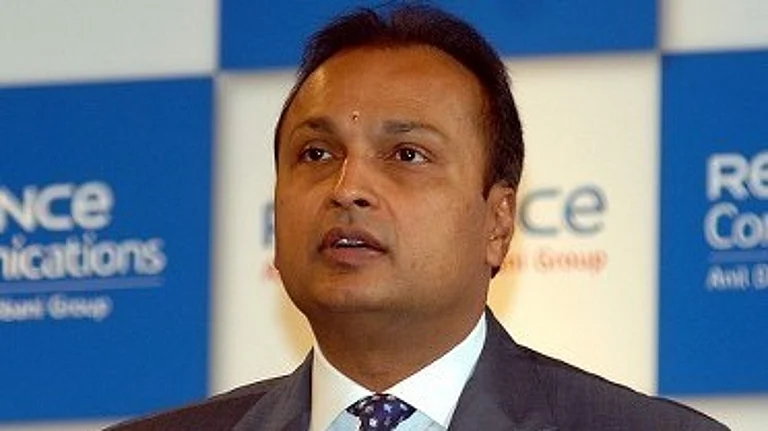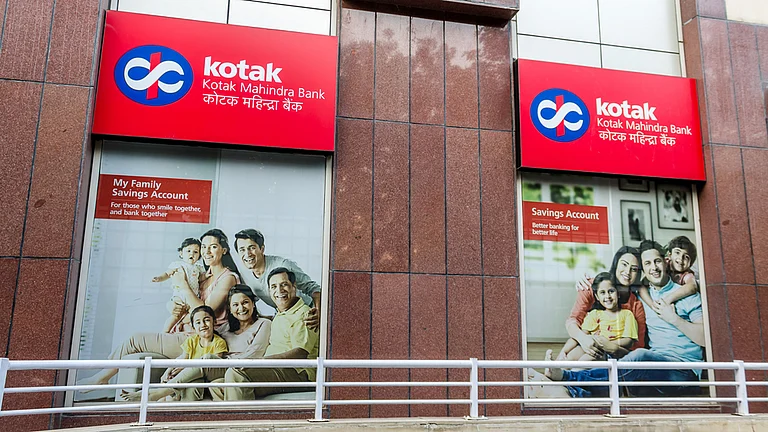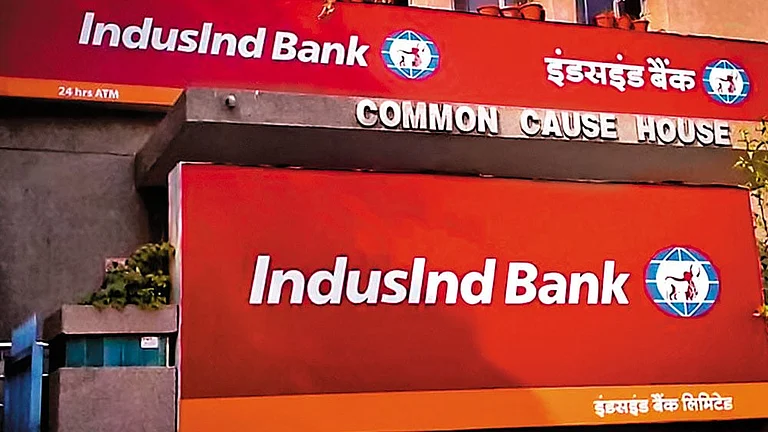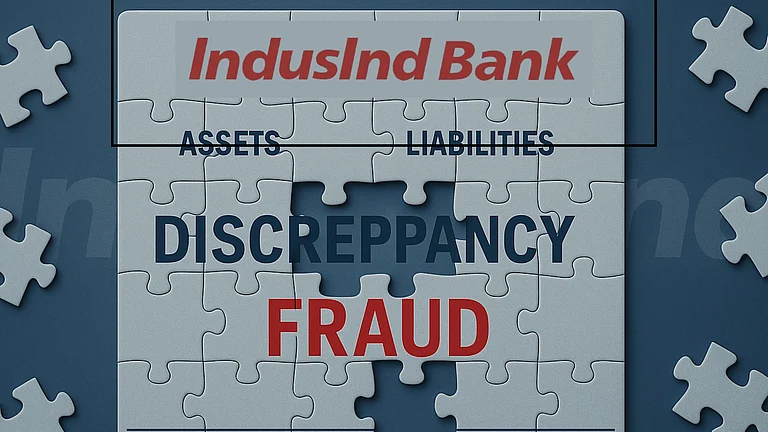IndusInd Bank shares are caught in a sea of negatives--fraud, insider trading, accounting mismatch, forensic audits, leadership crisis, with the list going on. What started as a minor 'discrepancy' in the derivative portfolio turned into a full-blown crisis for the lender, which eventually ate away its earnings.
In the recent Q4 results, the troubled lender reported a massive loss of Rs 2,329 crore, marking its first profit-deficit quarter in nearly 20 years.
However, the reaction that the stock received in trade today wasn’t as harsh as most would anticipate. While the stock did open with a 2% cut, the fall was soon bought out as shares of IndusInd Bank rebounded sharply to end the session with nearly 2% gains.

One key trigger that drove the relative resilience in the stock was that the loss in IndusInd’s Q4 numbers was already priced in by the market, capping the fall in the stock. IndusInd's stock has already witnessed a drop of over 30% since the crisis unfolded.
"IndusIndBank’s valuations seem alright, if the next MD is a private banker, the stock will rise. Within 6 months, IndusInd Bank will be a trader’s delight," Digant Haria, co-founder, GreenEdge Wealth Services told CNBCTV18.
Wait for the 'New-Normal'
While there remains some comfort on the valuation front, uncertainty still rules the rooster for IndusInd Bank, more so, as it grapples with the premature exit of its two top-level executives. That said, investors as well as analysts have not entirely lost hope with the lender, despite some near-term hiccups.
"Every other bank that has gone through accounting discrepancies or prior-period adjustments has taken 3–4 years to achieve a new normal. IndusInd Bank, being a large bank, could take less time," Nuvama Institutional Equities stated in a report.
However, the lender might still sail through troubles in the near future, since this is not the first time it has faced heightened distress.
IndusInd Bank has faced multiple governance-related setbacks over the years, with recurring issues haunting the overall investor sentiment. The bank was significantly affected during the IL&FS crisis. On top of this, a technical glitch at its microfinance subsidiary led to the unauthorised disbursement of approximately 84,000 loans in May 2021. Besides this, the ongoing crisis is likely to erode another layer of confidence among retail depositors.
"How retail depositors behave in the short term after back-to-back disclosures of prior-period adjustments is an unknown. IndusInd will thus need to maintain high liquidity at least in H1 FY26, impacting NIM in FY26," HSIE analysts said.
Flurry of Downgrades
Even as the stock remained resilient, brokerages have poured a series of downgrade ratings, flagging near-term pressures. According to Nuvama Institutional Equities, visibility for FY26 remains limited, as the outlook for retail deposits is uncertain following repeated disclosures of discrepancies in FY25.
To that effect, the brokerage firm has slashed EPS estimates, trimming its target price for the stock by 20% to Rs 600, while retaining its 'reduce' rating on the stock.
Meanwhile, the incoming CEO will play a detrimental factor in guiding sentiment for the stock ahead with the mammoth task at hand. "The new CEO will have to tighten internal controls, strengthen governance and likely rebalance the asset mix, implying a sharp slowdown in earnings growth for the next two years," the Nuvama said.
Multiple de-ratings might also signal a loss of credibility on the compliance front, eventually leading to heightened regulatory scrutiny going forward.
"We believe it is crucial for IndusInd to prioritise franchise stability, which calls for a complete overhaul beginning with the appointment of a pedigreed leadership team, revamp of operational practices and institution of tighter controls and systems, implying softer growth and profitability, contrary to management guidance," HSIE analysts stated.
Adding to the list, HDFC Securities also cut its target price for the stock to Rs 665, sharply down from Rs 1,070, while also downgrading IndusInd to a 'reduce' call. So far this year, the shares of the banking firm have dropped over 19%. The stock is down by over 49% from its 52-week high of Rs 1,550 price level.
For now, even though valuations might offer some comfort amidst all the uncertainties playing out on the regulatory front, the new leadership will play a major role in how things pan out for the banking firm.

































